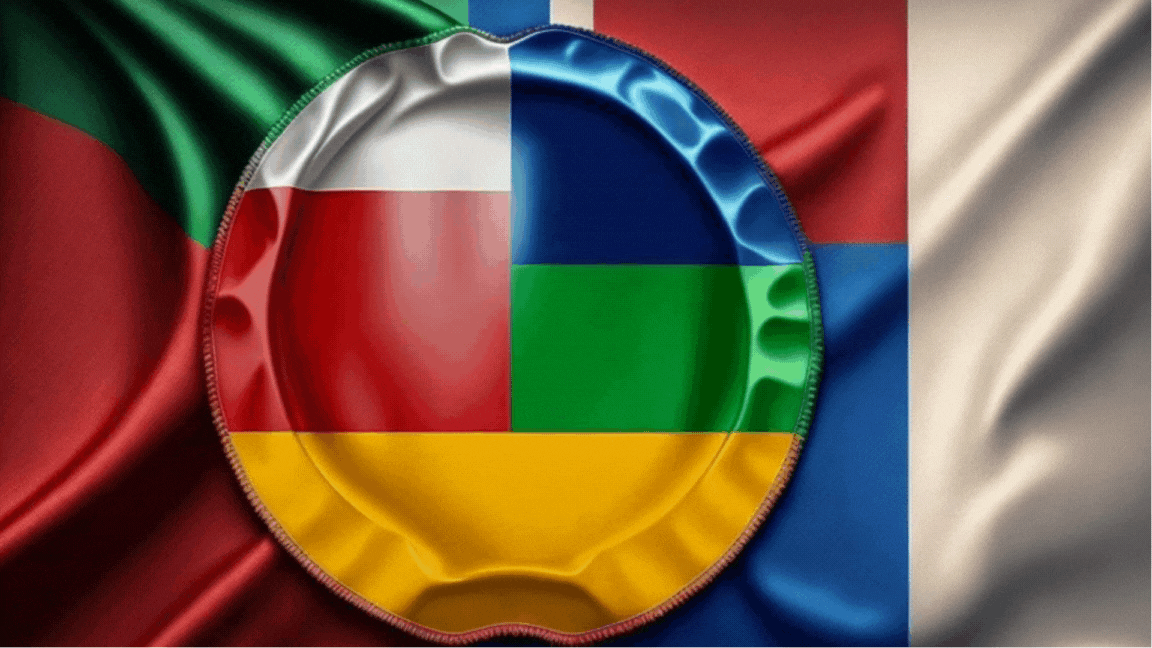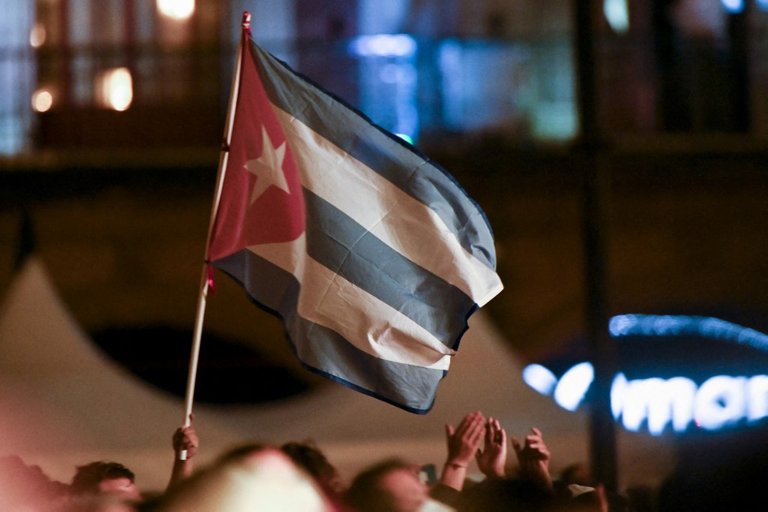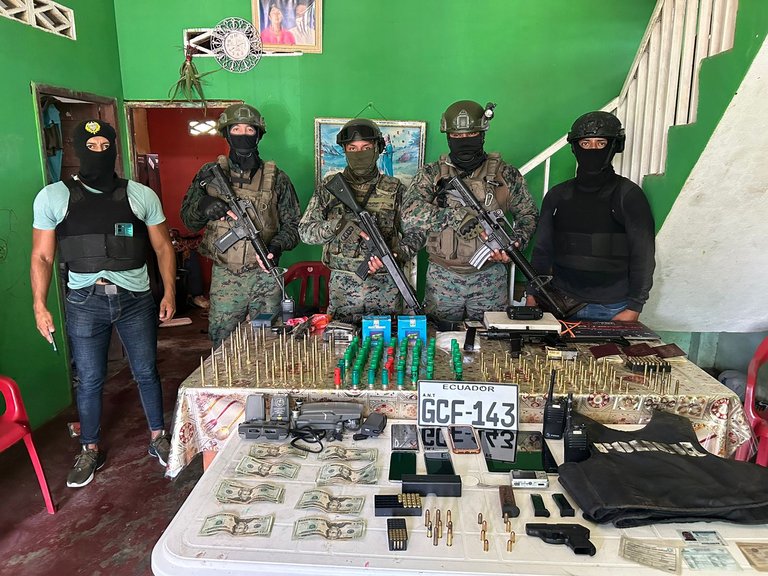The Latin American Report # 169

Cuba
A little more than thirty relatives of individuals imprisoned for having demonstrated between July 11 and 12, 2021 demanded from the legislative branch the approval of an amnesty law. It is a "rare" move in our sphere, in terms of channeling political conflicts through state institutions. A letter was addressed to the vice president of the Cuban unicameral Congress, appealing to a narrative that is more rhetorical than juridical, politically twisted. On July 11, 2021, thousands of Cubans took to the streets across the island to protest the increasing deterioration of the quality of life—due to health, energy, and food crises—and also to a large extent demanded rights that are problematic in Cuba despite being constitutionally recognized, such as freedom of expression and association. On that day, Lester Mallory almost came back to life, since never before had his brazen 1960 prophecy come so close to being fulfilled. The Foggy Bottom official called to make—adroitly and inconspicuously—"the greatest inroads in denying money and supplies to Cuba, to decrease monetary and real wages, to bring about hunger, desperation, and overthrow of government".
I have been very critical of government management here, although perhaps I have not made many historical judgments. There is a humongous internal responsibility, and of course also a decisive one, in the socio-economic and political drift of the country, but I dispute when people omit—both from manipulation and ignorance—the harmful and frustrating impact of U.S. policy against Cuba. My problem with those who came out that aforementioned day is precisely that their opposition is not holistic. As I have said so many times here, one cannot explain Cuba's obvious democratic or economic shortcomings without denouncing Washington. If there has been a predisposition to restrict freedoms, there has also been a plausible argument to do so (two inmates whose freedom is being demanded were connected to regime change programs advanced by U.S. federal agencies, although they were not condemned for it). So in their letter, the relatives Olympically avoid this dimension, and also that many defendants did more than just shout "freedom" since not a few of them are linked to violent acts and contempt for the authorities. The granting of amnesty is a prerogative of the Cuban parliament. The president can only propose them, although he does have the power to grant pardons.
 Source
SourceThe relatives denounce pressures from the State Security for their activism against the detention of their loved ones. I don't deny that this dynamic may be real; in that case, I'm at odds with it whatever the circumstances. There are many actions and strategies of confrontation related to everything that politically "disturbs" the power in Cuba that don't belong to a state of law. The Government here assumes that those who took part in 11J are bastard products of Washington's aggressive strategy. So it will not compromise in the face of petitions such as the one I have referred to here, especially if they are made from an approach that doesn't address feelings, but rather reproduces a discourse elaborated in Antony Blinken's office. In that sense, it is necessary to recognize that Havana hoped that the July 11 prisoners would be a key factor in potential talks with the Biden administration, seeking a relaxation of the historic sanctions regime instituted by Eisenhower and Kennedy. But the White House seems hamstrung by the rarefied electoral context, and as November approaches it is much less likely that there will be any move in this direction.
Ecuador: an update
In Ecuador, the state of emergency declared by the Government of Daniel Noboa is maintained with certain modifications, and the decree that established the existence of an "internal armed conflict" is also in force, which put in the sights of the Armed Forces some twenty organizations that are now recognized as "terrorists". The authorities continue to obtain certain results in the fight against crime, for the moment the crisis in the penitentiary system seems to have subsided, there are signs of a decrease in homicides, and important seizures of weapons and drugs have been reported, but it is still shameful that the military and police forces have not found the whereabouts of Adolfo Macías and Fabricio Colón Pico, leaders of two of the most notorious gangs for their criminal record in the country.
Earlier this week, a judge ordered the preventive detention of nearly 80 individuals who were arrested last Sunday after forcibly occupying a hospital in the always-troubled province of Guayas, a sort of cathedral of crime (the operation required military support). The detainees were allegedly trying to "secure the life" of a co-religionist who was wounded in the hospital and later died (in México, remember, we recently reported the attempted rescue of a criminal leader who was in the hands of the authorities). Meanwhile, the army removed 1,500 meters of internet and satellite TV cables from a prison in the southern city of Machala, which allegedly allowed inmates to plan illicit activities ranging from drug trafficking to contract killings.
#Guayas #BloqueDeSeguridad, realizando operaciones de ámbito interno, cuarenta miembros de organizaciones terroristas intentaron tomarse las instalaciones del Hospital Yaguachi, el rápido accionar militar y policial permitieron la aprehensión de los terroristas.
— Fuerzas Armadas del Ecuador (@FFAAECUADOR) January 21, 2024
EN DESARROLLO pic.twitter.com/MQQiqo01ch
Last Wednesday, authorities reported with pomp the arrest of two heavyweights of the gang known as Los Choneros, whose main leader is Macías, alias "Fito". The brothers Pedro and Bryan Oviedo were part of "two armed groups (known as) Las Águilas and Los Fatales, which are part of (a) terrorist structure of Los Choneros", a local Ecuadorian police chief told a press conference, adding that the individuals are allegedly responsible for murders, drug trafficking, and extortion. Finally in our passage through the middle of the world, yesterday we learned that to date security forces have seized nearly 1,300 firearms during thousands of operations since January 9, along with more than 62,700 rounds of ammunition, about 930 feeders, about 1,540 bladed weapons, and 5,243 explosives. More than 3,600 people have been detained during the emergency regime, with about 240 accused of terrorism.
 Nine subjects were apprehended in the last hours by the Army during a raid carried out in San Enrique de Naranjito, of course, in Guayas, seizing 1 submachine gun, 1 pistol, about 280 ammunition of different caliber, 6 bulletproof vests, 1 drone and communication equipment.
Nine subjects were apprehended in the last hours by the Army during a raid carried out in San Enrique de Naranjito, of course, in Guayas, seizing 1 submachine gun, 1 pistol, about 280 ammunition of different caliber, 6 bulletproof vests, 1 drone and communication equipment.And this is all for our report today. I have referenced the sources dynamically in the text, and remember you can learn how and where to follow the LATAM trail news by reading my work here. Have a nice day.


Yay! 🤗
Your content has been boosted with Ecency Points, by @limonta.
Use Ecency daily to boost your growth on platform!